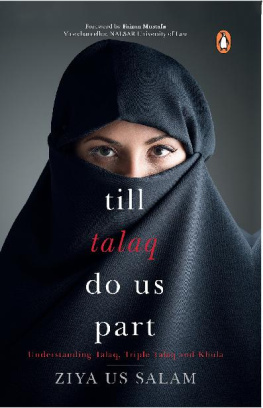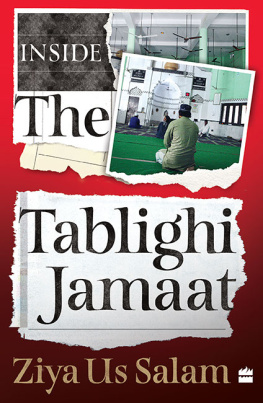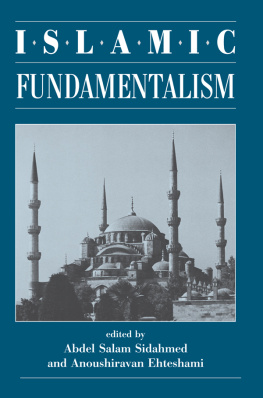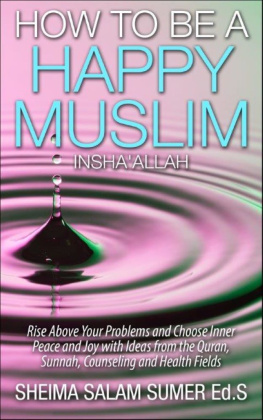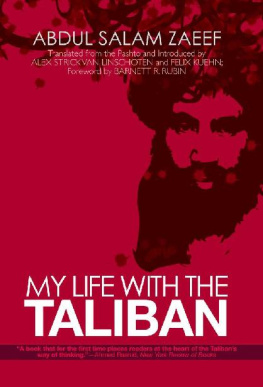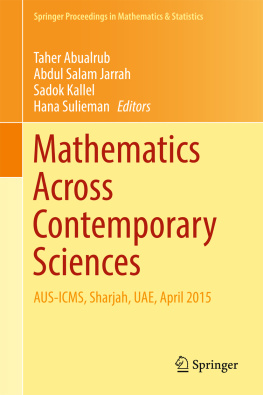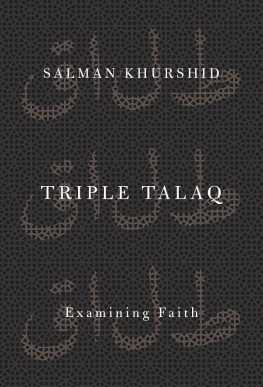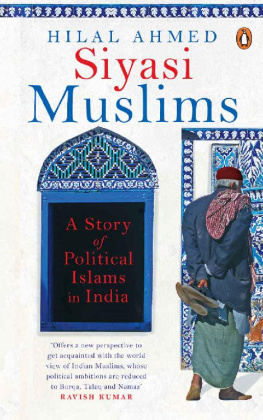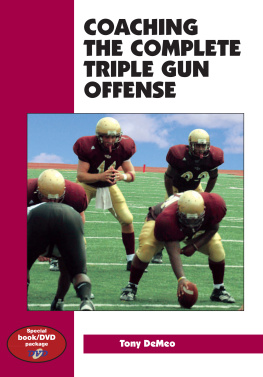ZIYA US SALAM
till talaq do us part
Understanding Talaq, Triple Talaq and Khula
Foreword by Faizan Mustafa
Vice chancellor, NALSAR University of Law
Contents
PENGUIN BOOKS
TILL TALAQ DO US PART
Ziya Us Salam is an associate editor with Frontline . A noted literary and social commentator, he is involved in building bridges of commonality through a study of the Vedas and the Quran.
He has served on the jury of the International Film Festival of India (IFFI) and been a part of the jury for Best Writing on Cinema in 2008. He has also been on the preview committee of IFFI (world cinema). His book Delhi 4 Shows: Talkies of Yesteryear , a study based on the cinema halls of Delhi, was released in 2016. In 2012, he edited a book titled Housefull: The Golden Age of Hindi Cinema .
Adopting a multilayered approach, he writes about literary and cinematic developments regularly and has contributed to anthologies published by the publications division of the ministry of information and broadcasting and the British Council, among others.
His book Of Saffron Flags and Skull Caps will be out soon.
Advance Praise for Till Talaq Do Us Part
This book delves deep into the forms of divorce sanctioned by the Quran, of which there are nine, including mutual consent, available to both husband and wife. Triple talaq is not sanctioned by Islam and has already been banned in many Muslim countries
Nayantara Sahgal, author
Ziya Us Salams timely book explains all you need to know about triple talaq... It is an important contribution to our understanding of what the process of divorce is according to Islam. A must-read for those interested in gender, community and Islam
Zoya Hasan, professor emerita, Jawaharlal Nehru University
Till Talaq Do Us Part by Ziya Us Salam is a fine effort to meticulously and logically put together relevant matter in the context related to talaq in Islam, the viewpoints of different schools of thought, practices followed by various sections of the Muslim society, legal developments around it in India and opinions of legal experts.
Despite disagreements on various observations, [I believe] the book will be very helpful for those who wish to understand the need and the spirit behind the provision of talaq in Islam. It will also be helpful to give an exposure [to the] social system of Islam, its true spirit and the rationale behind it
Mohammad Salim Engineer, secretary general, Jamaat-e-Islami Hind
To Uzma Ausaf,
my biwi, my anchor
Foreword
T he Muslim Personal Law is nothing but an opinion of jurists and therefore, strictly speaking, it is not law within the ambit of Article 13(3) of the Constitution of India. We need not look at the Quran to find the law governing a particular school of Islam. Ideally, we should examine the juristic opinion of the school concerned. Moreover, since Article 26 protects freedom of religion of even a sect, we cannot impose the law of one sect over another. In the past, the ulema would freely adopt the rules of other schools. The Dissolution of Muslim Marriage Act, 1939, was passed at the instance of the Hanafi ulema who adopted the Maliki law. Why they refused to adopt the more rational position of other schools or follow the liberal opinion of their own jurists on the issue of triple divorce is not clear. Their failure has contributed to the current crises.
Juristic opinion on the validity of triple talaq is indeed divided. The author has rightly quoted the Quran which declares in Surah Baqarah, verses 229 and 230, that Divorce can be pronounced twice: then, either honourable retention or kind release should follow... Then, if he divorces her, she shall not be lawful to him unless she first takes another for a husband.
The expression al-talaqu marratan in verse 229 means that divorce may be pronounced twice. Marratan (twice) implies a gap between two pronouncements, which would mean there should be sufficient gap between two pronouncements of divorce. When we say, I went to your office twice but you were not there, it cannot mean that you went to the office twice in one go. It means you went once and then again after a reasonable period of time. Similarly, there has to be a gap between the divorces, and thus instant triple divorce in one sentence or three sentences in one sitting is indeed against the Quran.
Imam Bukhari considers triple divorce as being valid from the above verse and emphasizes the words if he divorces her, which refer to the third time. Most Sunni schools, except Ahl-e-Hadith, consider triple divorce valid.
Some jurists are of the view that the Prophets face turned red on hearing about the pronouncement of triple divorcehe stood up and is believed to have said, You have made a mockery of the Quran in my lifetime. On the basis of this Hadith, some hold that triple divorce in one go is not valid. Others argue that had divorce not become effective, the Prophet would not have been so angry.
But Sahih Muslim and Abu Daud (two authentic collections of Hadiths) tell us that during the Prophets life, during Abu Bakrs period and for the first two years of Umars caliphate, three divorces given at a time were treated as one divorce. During Caliph Umars time, many men would divorce their wives. Later, when the cooling-off period would be about to end, they would take back the divorce. They would then repeat the act. To put an end to this mockery, the caliph approved of three divorces in one sitting, but he took the wifes opinion too. The divorce was solemnized if the woman, too, agreed to it. The man was then subjected to lashes as a punishment for instant divorce.
Thus, though the dominant juristic view did hold triple divorce in one sitting as valid, there were enough dissenting voices in each school of Islam which considered three pronouncements in one go as just one revocable pronouncement. At least after the Supreme Courts judgment, the Indian ulema should consider adopting this alternative view and clearly declare that three divorces in one go would be counted as one pronouncement. People, too, adopt or discard juristic views as per their convenience.
Indeed, the incidence of triple divorce is low. In some cases, even when divorce is mutual or at the instance of the wife after the failure of several rounds of arbitration, mediators and lawyers themselves advise parties to record triple divorce because they think three pronouncements must be made or recorded in writing. As per Census 2011, only 0.49 per cent Muslim women were divorcees, and all of them had not been given triple divorce. The Quran itself lays down an elaborate procedure of divorce, which has now been accepted by the All India Muslim Personal Law Board. The Muslim women who had gone to court were basically demanding nothing more than just reverting to the procedure of divorce mentioned in the Quran.
Under the Quranic scheme now adopted by the board, if there are differences between the spouses, they should amicably try to resolve them by talking to each other in the spirit of forgiveness. If this does not yield the desired results, there may follow a temporary withdrawal while they continue to live in the same house. If the first two steps fail, and if differences continue to persist, the two parties should try sincere reconciliation by turning to their families or by appointing an arbiter from each side, who would leave no stone unturned to help the spouses reconcile. If arbitration does not yield positive results and there is no possibility of a patch-up, with irretrievable breakdown of the marriage clear, only one divorce is to be pronounced by the husband. This single pronouncement is to be compulsorily followed by a waiting period of three months, or, if the wife is pregnant, till the child is born. If during this waiting period the spouses change their mind and want to stay married, the divorce stands revoked. Lastly, if no revocation takes place within the waiting period, divorce is considered to be complete at the end of three months or the extended period due to pregnancy. Thus, only one divorce is enough to dissolve a Muslim marriage.



